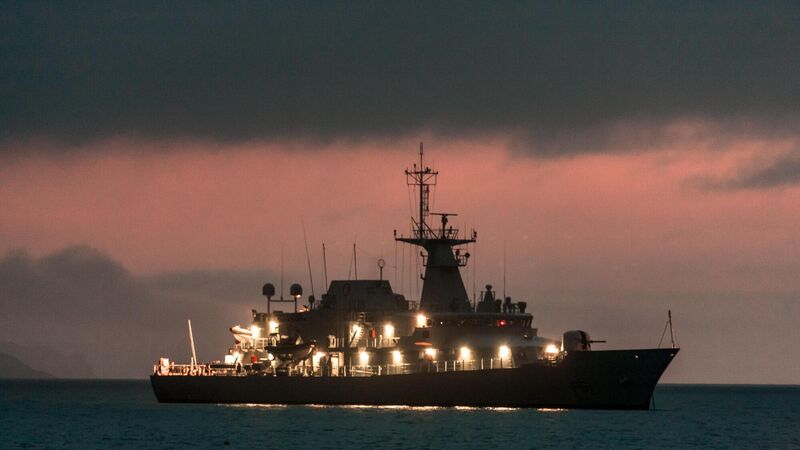Ireland's failure to protect subsea cable poses 'threat' to EU and Nato

Irish naval vessel LÉ Samuel Beckett. Because Ireland is not a member of Nato, hostile states, such as Russia, face “lower diplomatic risks” by interfering with cables in Irish waters, experts have said.
Ireland’s failure to protect critical subsea cables poses “a heightened level of threat” not just domestically but also for the EU and Nato, according to maritime experts.
They warn that because Ireland is not a member of Nato, hostile states, such as Russia, face “lower diplomatic risks” by interfering with cables in Irish waters, knowing it would still impact the western military alliance.













